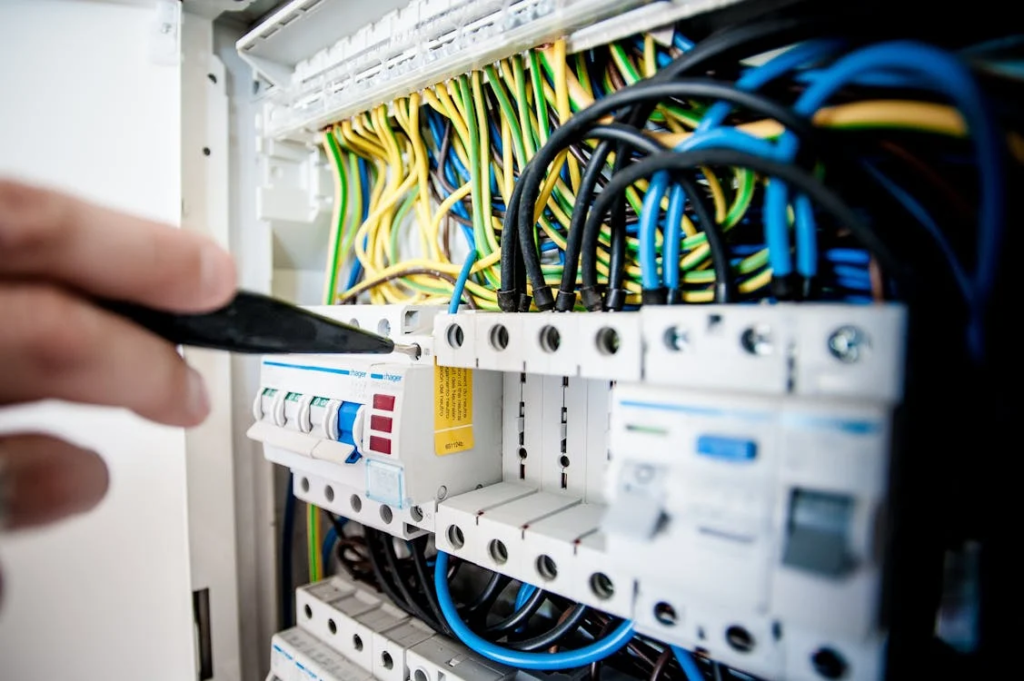After years of learning and struggling with mechatronic engineering at the University, I was met with the big question of what career I could choose to follow. Mechatronic engineers, with their unique blend of mechanical, electrical, and computer engineering skills, are in high demand across various industries.
Their versatility and problem-solving abilities make mechatronic engineers valuable assets to organizations worldwide. This makes them highly sought-after in various industries.
As a course, mechatronics engineering is the most sought-after career path. In the ever-growing world of technology, the blend of engineering fields narrows with every new invention and improvement in technology.
A few years ago, engineering embraced the specification of fields. But as times have changed, there has been more need for diversification due to the emergence of fields such as robotics, biomedical engineering and other robust fields.
Let’s delve into the top 15 job roles for mechatronic engineers, categorized by experience level.
Careers Paths For Mechatronic Engineers
There are many career paths for an engineer, and from one person to another there will be many variances. It all depends on your career goals and what aligns with your plans. When I began taking a career journey, I had to begin from the very bottom, as a technical support intern then grew my career to a technical lead in an IoT company.
For many of my friend, their paths have been different. Some began start-ups, entry-level positions and others in senior positions.
These paths were cultivated through years of learning, acquiring new skills and growing expertise in various fields.
While there is no clear-cut path, we will explore a few career choices that can help you move through the noise.
Entry-Level Roles
No doubt engineering is a competitive field. While there are many careers and jobs available there is also a high demand for quality and niche skills. It is important to understand that you cannot tick all the boxes or have all the skills in the world.
For those just starting, technical roles like Robotics Technician and Automation Technician provide a solid foundation. Robotics Technicians assist in assembling, testing, and maintaining robotic systems, while Automation Technicians focus on installing, configuring, and troubleshooting automation systems.
Basically technical work for technicians. Those with handy skills and good in practical applications can find a solid start and scale up as they grow their expertise.
Quality Control Engineers, with their keen eye for detail, ensure product quality by implementing stringent quality control measures.
1. Robotics Technician:
Robotics is the most prominent and most chosen career path by mechatronics engineers. It explores the diversity of all engineering fields and is ever-expanding. When it began to be explored, it was a subsect of industrial engineering. To improve and maintain the sustainability of manufacturing processes.
With the advent of artificial intelligence and other fields in robotics, it has now become a huge part of the engineering world.
Choosing to be a robotics engineer is a sure way to expose yourself to a very diverse field.
- Responsibilities: Assist in the assembly, testing, and maintenance of robotic systems.
- Skills Required: Basic programming skills, mechanical aptitude, and problem-solving abilities.
2. Automation Technician:
Automation is the simplification, improvement and maintenance of systems, most commonly industrial and manufacturing systems. In part, automation can overlap greatly with robotics and mechanical processes.
The most common jobs in this career will be in plants and operations. Working with huge teams can help improve your skills and grow you career exponentially.
- Responsibilities: Install, configure, and troubleshoot automation systems.
- Skills Required: Knowledge of PLC programming, electrical wiring, and hydraulic/pneumatic systems.
3. Quality Control Engineer:
Quality control engineering and quality assurance are embedded in mechatronics. The entire premise of mechatronics is control; controls of systems, processes and how they work cohesively.
Systems cannot work on their own efficiently or effectively unless they are programmed and control processes put in place to correct for errors. Control engineering is a tool that is used to ensure that this goal is achieved. As a technician, your goal is to make sure the systems work. On the other hand, control engineers implement controls that in effect control those processes and systems.

Responsibilities: Ensure product quality by implementing quality control measures and conducting tests.
Skills Required: Attention to detail, problem-solving skills, and knowledge of quality control standards.
Mid-Level Roles
As you gain experience, you can progress to roles like Mechatronics Engineer, Product Design Engineer, and Control Systems Engineer. Mechatronics Engineers design and implement integrated systems, while Product Design Engineers focus on creating innovative products. Control Systems Engineers are responsible for designing and implementing control systems for various applications, from industrial processes to aerospace systems.
Field Service Engineers play a crucial role in providing on-site maintenance, repair, and troubleshooting of mechatronic systems. Their technical expertise and problem-solving skills are essential in ensuring optimal system performance.
4. Mechatronics Engineer:
Unlike maintenance technicians responsible for maintaining, with engineers there is a lot of designing and new development of systems. While servicing and repairing systems to ensure optimal operations, new designs are responsible for adopting new technologies.
- Responsibilities: Design, develop, and implement mechatronic systems, including robotics, automation, and control systems.
- Skills Required: Strong foundation in mechanical, electrical, and computer engineering, as well as programming skills.
5. Product Design Engineer:
Design is an important part of any industry. It is the language that communicates form, function and other factors such as ergonomics. If you have ever used an unusable product, that is what product design aims to eliminate. From the conception of an idea to the final product, designers have to design and test several iterations.
- Responsibilities: Design and develop new products, from concept to production.
- Skills Required: Solid understanding of engineering principles, CAD software, and product development processes.
6. Control Systems Engineer:
Most quality control engineers end up being control systems engineers as they understand the processes and systems. Control engineers design and implement systems for control. In every sector of engineering, there is a need for control systems. Imagine having Aeroplaes without a course correction system.
Responsibilities: Design and implement control systems for various applications, such as industrial processes, robotics, and aerospace systems.
Skills Required: Strong understanding of control theory, feedback systems, and programming languages like MATLAB and Python.
7. Field Service Engineer:

Responsibilities: Provide on-site maintenance, repair, and troubleshooting of mechatronic systems.
Skills Required: Strong problem-solving skills, technical expertise, and excellent communication skills.
Senior-Level Roles
With further experience and specialization, you can advance to senior-level roles such as Robotics Engineer, Autonomous Vehicle Engineer, and Aerospace Engineer. Robotics Engineers lead the development of complex robotic systems, while Autonomous Vehicle Engineers work on cutting-edge technologies like self-driving cars. Aerospace Engineers contribute to the design and development of aircraft, spacecraft, and satellites.
Biomedical Engineers apply their knowledge to develop medical devices and systems, improving healthcare and saving lives. Research and Development Engineers drive innovation by conducting research and developing new technologies.
8. Robotics Engineer:
Lead the design, development, and implementation of complex robotic systems.
Skills Required: Advanced knowledge of robotics, artificial intelligence, and machine learning.
9. Autonomous Vehicle Engineer:
Develop self-driving cars, trucks, and other autonomous vehicles.
Skills Required: Expertise in sensors, control systems, and artificial intelligence.
10. Aerospace Engineer:
The field of Aerospace engineering has drastically increased. From aeronautical all the way to space engineering. Currently, there are thousands upon thousands of satellites and spacecrafts in our space. This means that there are millions on millions of job opportunities in this field.
SpaceX, NASA and other space exploration programs are not yet saturated with engineers to design and develop for the next frontier of space travel. It has never been better to be an aeronautical or aerospace engineer.

Design, develop, and test aircraft, spacecraft, and satellites.
Skills Required: Strong understanding of aerodynamics, structural analysis, and control systems.
11. Biomedical Engineer:
Develop medical devices and systems, such as prosthetics, implants, and diagnostic tools.
Skills Required: Knowledge of biology, medicine, and engineering principles.
12. Research and Development Engineer:
Conduct research and development to advance technology and create innovative products.
Skills Required: Strong problem-solving skills, creativity, and a passion for innovation.
Executive-Level Roles
At the executive level, Mechatronics Engineers can take on leadership roles such as Engineering Manager, Director of Engineering, or even Chief Technology Officer (CTO). Engineering Managers lead engineering teams, oversee projects, and ensure product quality and delivery. Directors of Engineering are responsible for developing and implementing engineering strategies, while CTOs oversee all technological aspects of a company.
13. Engineering Manager:
Lead engineering teams, manage projects, and oversee product development.
Skills Required: Strong leadership skills, project management skills, and technical expertise.
14. Director of Engineering:
Develop and implement engineering strategies, oversee R&D efforts, and manage engineering teams.
Skills Required: Strategic thinking, strong leadership skills, and a deep understanding of engineering principles.
15. Chief Technology Officer (CTO):
Oversee all technological aspects of a company, including product development, IT infrastructure, and cybersecurity.
Skills Required: Strong technical expertise, strategic thinking, and leadership skills.
The Future of Mechatronics
The future of mechatronics is bright, with emerging technologies like artificial intelligence, machine learning, and the Internet of Things opening up new opportunities. Mechatronic engineers are well-positioned to shape the future and drive innovation across various industries.
By combining technical expertise with creativity and problem-solving skills, mechatronics engineers can build fulfilling and rewarding careers.











